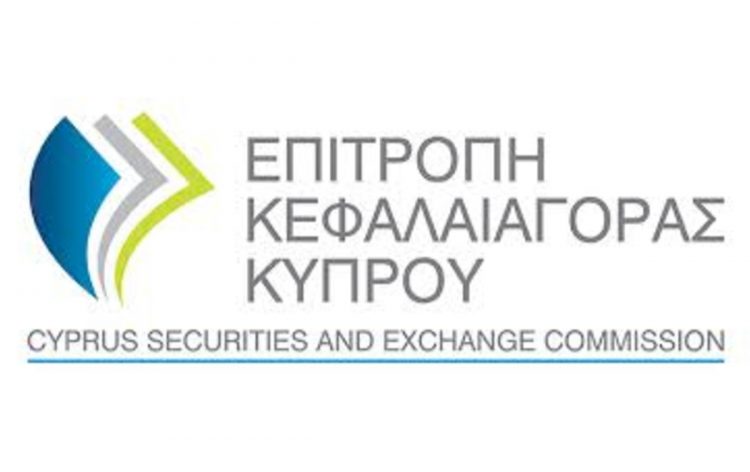CySEC is bringing changes to the Investor Compensation Fund

Thy Cyprus Securities and Exchange Commission (CySEC) is changing its approach to the compensation of investors. Yesterday, the Cyprus financial watchdog introduced the final set of reforms to the legal framework governing the operation of the Investor Compensation Fund (ICF).
The new directive will be applied to all Cypriot Investment Firms (CIFs) that provide investment or similar financial services to the customers. The regulator observed numerous losses of client funds in recent years and updated rules is an attempt to find a solution for this problem. The rules aren’t only imposed on the investment service provides but also calls on the investors to be more careful when choosing a broker to trade with.
Changing the legal framework of ICF is a finalization of the sets of proposals the regulator had released for changing how the lifeboat fund is paid in April of 2017. While many industry participants were hoping for the exact same outcome in terms of broadening of the contribution basis of ICF fees, it might be less welcomed by the Cyprus-regulated brokers. However, the new changes imposed by CySEC are to come into force immediately and like it or not, all investment firms regulated in Cyprus will have to satisfy the mandatory provisions.
The new rules for CIFs
CySEC introduced annual fees for the investment companies in order to cover ICF’s operational and administrative expenses. The firms that are holding client assets will have to pay €700 annually, members who do not hold eligible funds will have to pay €100. The regulator will not return the contributions to the ICF at any stage, even when their authorization is withdrawn for any reason. This rule applies only on new entrants since the funds that were collected prior to the updated rules will continue to be kept as an asset of its payers.
The changes are not finished here, CySEC also amended the way of calculating the annual contribution to take any other specific risks into consideration. This will help the regulator judge how risky the company is and how likely is it for the customers to approach the Compensation Fund.
CySEC will now charge 0.5 percent of the Cypriot Investment Firms’ total eligible client assets each year. According to the regulator’s plan, it will determine the riskiness of the firms and offer discounts on the annual fees to those companies that will have a lower rate of risk. If the firm meets all deadlines and its external auditors expressed an unmodified opinion, the company will be offered an 80 percent discount on the annual fee.
On the other hand, if the deadline is not met by the firms and the financial instruments or audited statements are not submitted on time, CySEC will increase the contribution rate. Such companies will have to pay either €130.000 or 1 percent of the eligible funds, depending on which one of those will be higher. Brokers might find the new update arbitrary and ambiguous especially considering the previous rules.
Till this time the regulated CIF was stopping its payment to the Investment Compensation Fund when the cumulative contributions reached the 0.5 percent cap. With the new rules, they will continue contributing every year, even if the assets of their retail clients remain constant. However, now they have the possibility to obtain discounts as long as their business an accounting affairs remain compliant with the regulations.
The new set of rules also includes a provision that will allow CySEC to calculate extraordinary contribution per category and per sub-category of the members instead of having a single basis for all different members. Last but not least, members will be required to keep a minimum cash buffer of 3 per thousand assets of their clients in a separate bank account. This is in order to ensure that the investment firms have a minimum limit of liquidity for immediate payment. The Cypriot Investment Firms will start submitting a confirmation on the availability of such reserves in 2020.
Investors need to be more careful
As mentioned above the new rules are not all for investment firms but for their customers as well. With it, CySEC is forcing retail investors to be careful when choosing their brokers or service providers more carefully. Apparently, the renewed compensation scheme will be used as the first line of defense if the company collapses, rather than a backstop.
Till now, CySEC was fully compensating valid claims through the Investment Compensation Fund. With the new compensation scheme, valid claims will be granted with a maximum of €20.000 or 90 percent, whichever is lower instead of 100 percent. It means that if the investor holds € 30.000 with the CIF that runs into trouble and is not able to pay the investor, he will receive maximum €30.000. If the claim is less than €20.000, for example, €10.000, the investor will receive 90 percent of it – €9.000 from ICF.
The Chair of CySEC, Demetra Kalogerou commented on the changes stating that the new regulatory framework will provide a balanced, proportionate and risk-based approach in order to determine the level of contributions that are required by member firms. This will also ensure that the Investor Compensation Fund is a resilient and well-funded mechanism to support the compensation of eligible investors in the event of a last-resort market failure.


























Comments (0 comment(s))